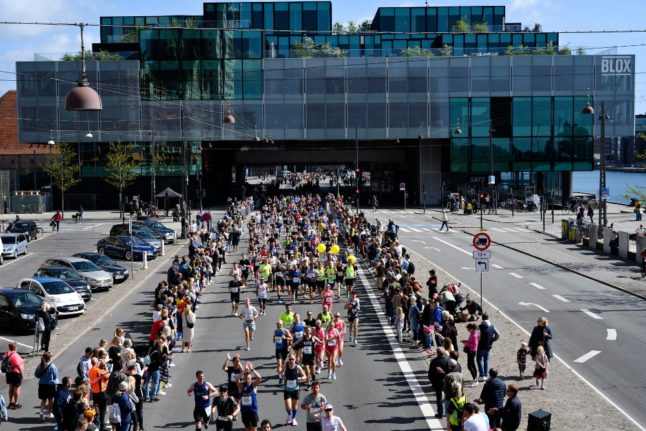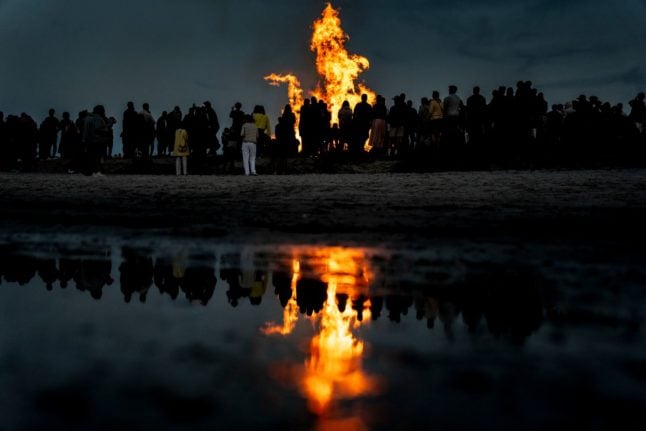Sirens and new mobile alert to be tested
Each May, Denmark tests the physical sirens that authorities can use to warn the population if there is an emergency situation.
That has not changed in 2023, with the test scheduled to take place as usual at noon on the first Wednesday of the month – May 3rd this year.
A new addition will accompany the noise of the sirens this year: a test of a new digital warning system through which authorities can send siren sounds and warning messages to smartphones.
With the new system, which is named S!RENEN, authorities will be able to send emergency messages to all phones within a selected local, regional or national area without those phones needing any specific apps to receive them.
This means that anyone with a smart phone connected to the Danish network will receive the test siren and message on their devices on May 3rd at 12pm.
READ ALSO: Danish authorities can send sirens to phones with new alert system
Deadline for finalising tax returns
Denmark’s tax authority SKAT opened access to annual tax returns on March 13th.
Annual tax returns (årsopgørelser) in Denmark cover calendar years. They are released in March and finalised in late spring, meaning taxpayers have this period to correct the information on their tax returns from the previous calendar year.
The tax returns encompass income over the preceding tax year as well as deductions and subsidies.
Normally, around three in four people receive money back from the tax authorities once their return is finalised. The amount paid back varies and depends on individual circumstances, and others may owe money to the tax system.
Rebates from the tax system began this year on April 14th onwards but the final deadline for updating information on the returns is May 1st. This means that, at the time of writing, you still (just about) have time to check whether your return is correct and update any information.
READ ALSO:
- Årsopgørelse: How to check whether you are due money as Denmark releases tax returns
- Four ways to (legally) lower your tax bill in Denmark
Public holidays including last ever Great Prayer Day
Great Prayer Day or Store Bededag gives a long weekend starting Friday May 5th. Make the most of it: in 2024 you will probably be working on this day. In February, the government abolished Great Prayer Day with effect from 2024.
Ascension Day, Kristi Himmelfartsdag in Danish, is less than two weeks after Great Prayer Day on Thursday May 18th.
Many Danes take the Friday after Ascension Day as annual leave, giving them a four-day weekend at the cost of only one day of leave.
Then there’s Whitsunday and Whitmonday, known in Danish as Pinsedag and 2. Pinsedag. These fall on May 28th and 29th respectively, so that’s another three-day weekend at the tail-end of the month.
Changes to border controls
Denmark is to reorganise its border control measures on the frontier with Germany from May 12th, while spot checks on the border with Sweden will be discontinued.
The changes to the German border controls mean that fewer motorists will now be stopped for checks at the border when entering Denmark. Instead, border controls will be made in line with police assessments on where they are most needed.
The new border controls with Germany take effect from May 12th and will be set to expire on November 11th.
READ ALSO: Denmark to scrap checks at Swedish border and stop fewer drivers from Germany
New rules for unemployment insurance benefits
New rules for dagpenge, the uninsurance benefits which you can qualify for through membership of private insurance funds known as A-kasser, take effect on May 1st.
The new rules mean that the monthly benefit for certain groups is increased during their first three months on unemployment.
However, people who graduate from higher education after May 1st and are looking for work will receive less than they did under the outgoing rules once they have received dagpenge for three months.
A language requirement will also be introduced for new graduates and the period in which they qualify for dagpenge will be reduced from 2 years within a 3-year period, to 1 year within a 2-year period.
READ ALSO: A-kasse: Everything foreigners in Denmark need to know about unemployment insurance
Switch to summer tyres (if you haven’t already)
Alternating between winter and summer tyres is not a legal requirement in Denmark, but is broadly recommended, including by FDM, the Danish membership organisation for motorists.
Neighbouring Sweden, Norway and Germany – where many Danish residents head on skiing and other holidays during the colder months – all have rules requiring winter tyres, meanwhile, meaning the practice is common in Denmark, not least for those who may need to take their cars over the border.
Most people switch back to summer tyres at Easter, which this year fell on April 9th. But the weather was still quite wintry during the early part of April, so some car owners may have held out a little longer.
More about the practice of using winter and summer tyres in Denmark can be found in this article.
Copenhagen Marathon to go ahead with new route
The recently-rebranded Copenhagen Marathon takes place on Sunday May 14th, so if you’re planning to drive or take a bus through parts of the capital that day you should plan ahead to avoid disruption.
The 42.2-kilometre route through the city has been changed this year, with the start and finish area now at Øster Allé near Fælledparken, instead of by the harbour at Islands Brygge as in recent years. It will take marathoners past Tivoli, Christiansborg and Kongens Nytorv, with the Round Tower and Nyhavn among spots dropped from the old route.
The marathon takes in each of Copenhagen’s central districts: Vesterbro, the Inner City, Østerbro, Frederiksberg and Nørrebro.
There’s usually a great energy along the route, with Nørrebrogade near Dronning Louises Bro (Bridge) and much of Østerbro, particularly around the Trianglen junction, among good places to lend your support.



 Please whitelist us to continue reading.
Please whitelist us to continue reading.
Marathon – april 14th ??? Did you mean May 14th??
Yes – Thank you! Now corrected.